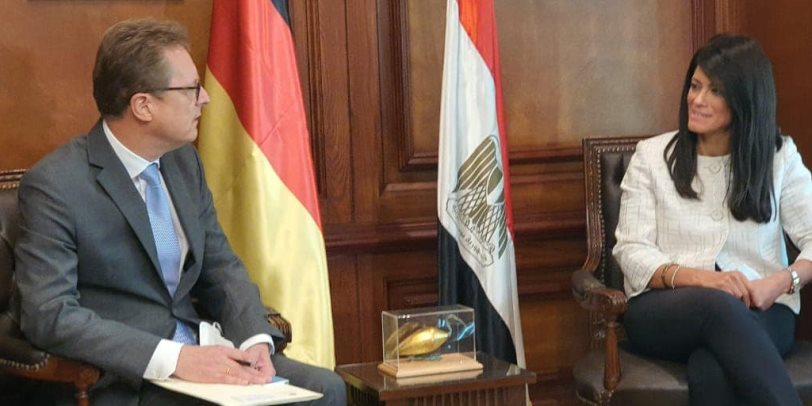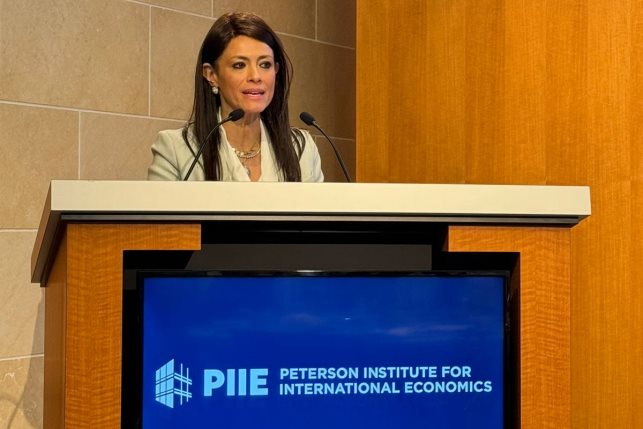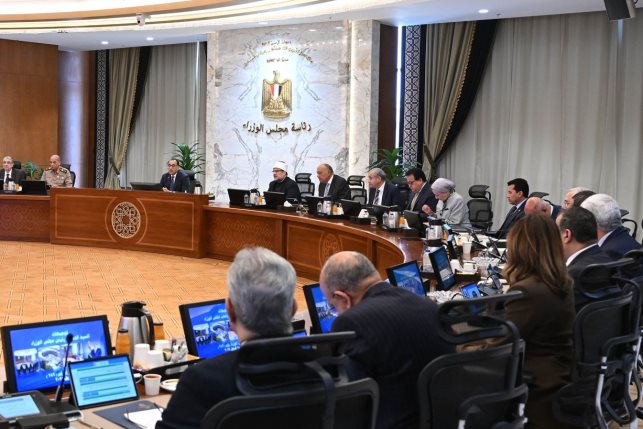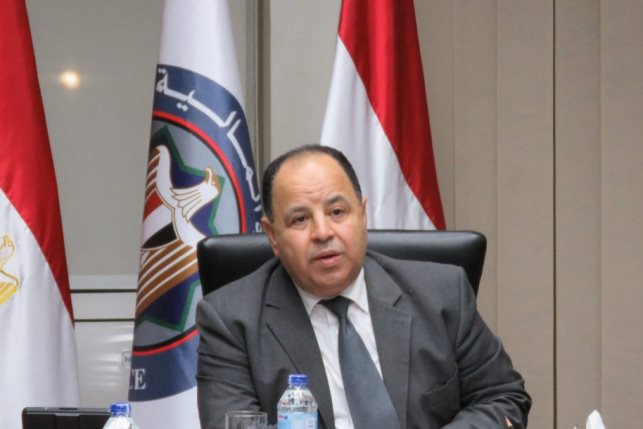MoICMin and Germany’s new ambassador talk debt-swap and mutual co-op
The minister and ambassador’s talks included the third and final tranche of the second phase of the debt swap program with Germany

Meeting with Germany’s new ambassador to Egypt, Minister of International Cooperation Dr. Rania A. Al-Mashat spoke with Frank Hartmann on Egypt and Germany’s mutual cooperation and ongoing co-op projects.
The minister and ambassador’s talks included the third and final tranche of the second phase of the debt swap program with Germany. The debt-swap program amounts to EUR 240 million.
Within the framework of the Egyptian-German Debt Swap program, the first phase concluded with an amount of €70 million, where it managed to implement several projects across the fields of school nurturing, enhancing the quality of education, rehabilitating hydroelectric stations, developing Assiut Barrage.
Egypt and Germany entered into 12 development financing agreements, worth €197 million, during the first half (H1) of 2021, funding ventures in the fields of energy, renewable energy, technical education, vocational training, administrative reform and sanitation.
Related > Egypt-Germany allocate €151.5M to 15 new development projects
Al Mashat emphasized the need to carry on with the National School Feeding Programme in cooperation with the World Food Program (WFP) to combat school dropout and child labor during the meeting, as well as referring to and the list of projects to be implemented across many development sectors.
Hartmann praised Egypt and Germany’s deep economic cooperation relations, alluding to the successful ongoing projects that are being implemented in cooperation between the two countries, primarily the Egyptian-German Center for Jobs, Migration and Reintegration (EGC).
The EGC was established last year with a development financing worth EUR 2 million, earmarked for the Ministry of Immigration and Egyptian Expatriates Affairs in cooperation with the German Agency for International Cooperation (GIZ).
Al Mashat also praised the strategic partnership between Egypt and Germany, which aims to enhance national efforts to achieve development in various sectors, including providing jobs and employment opportunities, enhancing infrastructure, and developing education; all to support the implementation of Egypt’s Vision 2030.
Discussions also included arranging field visits to the most prominent projects brought about through the cooperation between Egypt and Germany to present success stories and elucidate the profound effect these projects have with regards to improving the Egyptians’ livelihoods and advancing the UN’s Sustainable Development Goals (SDGs).
The meeting comes within the framework of the Ministry of International Cooperation's keenness to follow up on the ongoing development cooperation portfolio with multilateral and bilateral development partners, and to coordinate with stakeholders to ensure the value-centric results harnessed through the projects carried out with development partners.
Interested in learning more of Egypt’s multilateral relationships? Catch all Ministry of International Cooperation related news Here
The Minister also reviewed the Ministry’s strategy to advance the prospects for economic and development cooperation with multilateral and bilateral development partners through the Economic Diplomacy’s three principles, the Multi-Stakeholder Platforms (MSPs), the Official Development Assistance mapping to the Sustainable Development Goals (ODA-SDG Mapping), and the Global Partnerships Narrative that puts “People at the Core”, “Projects in Action”, and “Purpose as the Driver”, with the aim of documenting development stories to increase the public’s awareness of Egypt’s development story.
Egypt and Germany’s ongoing cooperation portfolio amounts to €1.7 billion financing 30 projects through funds and technical assistance grants, covering various sectors including renewable energy, sanitation, water resource and solid waste management, migration, labor market, innovation in the private sector, technical education, vocational training, and urban development.




